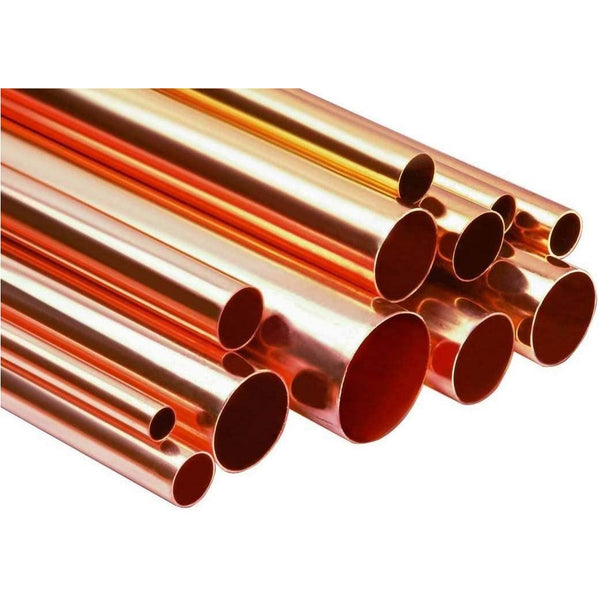Discover the Benefits of Using High-grade Copper Products for Home and Industry
Discover the Benefits of Using High-grade Copper Products for Home and Industry
Blog Article
Exploring the Diverse Applications of Copper Products in Modern Industries
From enhancing the effectiveness of electric systems to playing a critical function in renewable power technologies, the flexibility of copper is noticeable. As industries progressively focus on innovation and sustainability, the varied applications of copper require a closer evaluation, specifically concerning their possible effect on future ecological methods and technological improvements.
Electric Applications of Copper
Copper is a vital material in the electrical market, representing about 60% of the complete need for non-ferrous metals internationally - Copper Products. Its exceptional electrical conductivity, which is nearly two times that of aluminum, makes it the favored option for a wide variety of electric applications. From electrical wiring systems in property and business structures to high-voltage power transmission lines, copper guarantees effectiveness and dependability in electrical energy shipment
Along with circuitry, copper is integral to the production of electric parts such as generators, electric motors, and transformers. These elements leverage copper's thermal conductivity and pliability, essential for heat dissipation and reliable efficiency. Copper's resistance to deterioration boosts the life expectancy and resilience of electric systems, making it an affordable solution in the lengthy term.
The growth of renewable resource resources, such as solar and wind power, has better raised the demand for copper in electric applications. As markets change towards lasting energy services, copper's role ends up being much more vital. Overall, the convenience and performance attributes of copper solidify its status as a cornerstone product within the electrical market, driving innovation and efficiency throughout different applications.
Pipes and Piping Solutions
In modern plumbing systems, the option of products substantially impacts both capability and long life. Copper has actually arised as a favored choice due to its one-of-a-kind homes, including corrosion resistance and antimicrobial features. These features make certain that copper piping remains resilient and risk-free for transporting safe and clean water, a critical factor to consider in residential and commercial applications.
One of the crucial advantages of copper in plumbing is its ability to endure high temperature levels and pressures, making it suitable for a selection of applications, from warm water systems to heating and cooling networks. In addition, copper's versatility permits much easier installment in intricate piping designs, minimizing the threat of leaks and failings.
Another noteworthy benefit is copper's long lifespan, typically surpassing 50 years with appropriate upkeep. This longevity not only minimizes substitute costs yet likewise adds to sustainable techniques by minimizing waste. Furthermore, copper's recyclability straightens with modern ecological criteria, advertising a round economy within the pipes sector.
Copper in Renewable Energy
The convenience of copper extends past plumbing applications, playing a vital role in the sustainable power industry. In solar panels, copper is made use of in photovoltaic cells and electrical wiring, helping with reliable energy conversion and transmission.

Additionally, as the international need for electric cars (EVs) boosts, copper's duty in battery systems and charging facilities ends up being even much more significant. The product's ability to conduct electricity successfully is indispensable to the efficiency of EV batteries, improving variety and charging speed.
Copper's Role in Electronics
Electronic devices producing counts heavily on copper's remarkable residential or commercial properties, particularly its high electric conductivity and thermal effectiveness. These characteristics make copper an optimal choice for a variety of electronic elements, consisting of connectors, circuit boards, and wiring. The metal's ability to effectively transmit electrical signals ensures very little energy loss, which is crucial in high-performance digital devices.
In addition, copper's thermal conductivity plays a considerable role in warm dissipation, securing delicate elements from overheating. This is especially crucial in modern electronic devices, where portable styles bring about boosted warmth generation. Copper is likewise preferred for its malleability and ductility, allowing it to be quickly shaped right into intricate styles that fulfill the needs of advanced electronic applications.
With the surge of consumer electronic devices, telecommunications, and electric lorries, the demand for copper in the electronic devices industry proceeds to grow. As developments in innovation evolve, copper stays indispensable to achieving greater efficiency and reliability in electronic items. click for info Its recyclability even more boosts its appeal, as producers look for sustainable solutions without jeopardizing top quality. Hence, copper remains a foundation material in the ever-expanding field of electronics.
Cutting-edge Utilizes in Manufacturing

One notable application remains in additive manufacturing, where copper-based products are utilized in 3D printing processes. This permits the creation of intricate geometries and lightweight parts, particularly in the aerospace and vehicle sectors. Furthermore, copper's thermal conductivity makes it an ideal choice for heat exchangers, improving effectiveness in industrial air conditioning systems.
Furthermore, the surge of wise manufacturing has actually seen the unification of copper in IoT gadgets, where its conductive capacities support innovative picking up innovations. In the world of renewable resource, copper is pivotal in the production of photovoltaic panels and wind generators, facilitating extra efficient energy conversion and circulation.
As industries aim for sustainability and innovation, copper's versatility and efficiency continue to position it as an essential material, driving developments in production and adding to the development of smarter, much more effective products.
Final Thought
The indispensable duty of copper in eco-friendly power and its vital function in electronics emphasize its relevance in progressing sustainable practices. Jointly, these applications show copper's critical contribution to technical progression and commercial effectiveness in contemporary culture.
From improving the efficiency of electric systems to playing a critical role in renewable power innovations, the flexibility of copper is noticeable. As industries significantly focus on development and sustainability, the varied applications of copper call for a closer evaluation, specifically regarding their prospective influence on future technical improvements and environmental techniques.
The development of sustainable power sources, such as solar and wind power, has actually even more increased the need for copper in electric applications. In general, the versatility and efficiency qualities of copper solidify its standing as a keystone product within the electrical market, driving technology and performance across different applications.
The adaptability of copper prolongs past pipes applications, playing a vital function in the renewable power industry.
Report this page